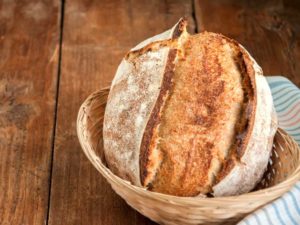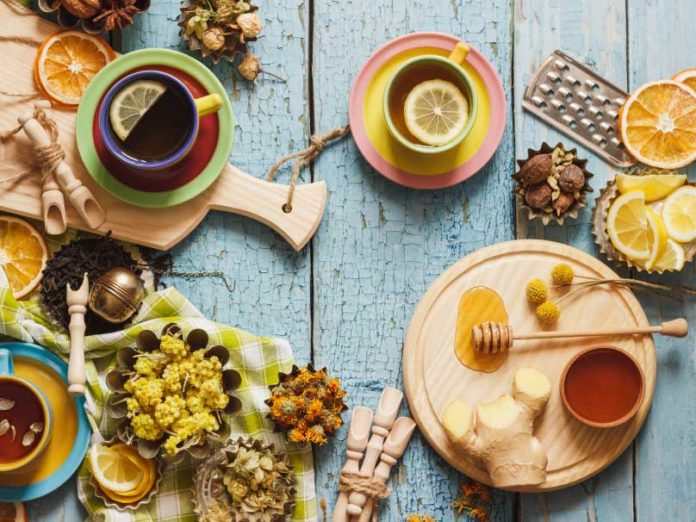I’ve seen it throughout my medical career — food is medicine! Certain foods can lead to a host of health problems, but others do the opposite. Thankfully, in recent years, this concept is widely catching on!
NPR recently did a story about how more physicians are actually recommending dietary changes as formal treatment. Dr. Brenda Rea, who was interviewed for the story, said, “As a physician, nutrition is one of the most powerful things you can change to reverse the effects of chronic disease.” I agree wholeheartedly with Dr. Rea!
A 2016 study published in the Journal of Geriatrics specifically addresses the role of a plant-based diet in reducing angina. Another study, in the American Journal of Public Health, looked at mental health in children. It uncovered a, “significant, cross-sectional relationship between unhealthy dietary patterns and poorer mental health in children.” Other evidence-based examples abound.
I often write about one type of medicinal food in-depth, but this list contains some of the top performers. Read on to learn which foods may prevent or even treat illness.
Fermented Foods
 I cannot stress enough the wonders of probiotics and fermented foods are rich in probiotics. They promote healthy bacteria in the gut. In turn, a healthy gut supports robust overall health.
I cannot stress enough the wonders of probiotics and fermented foods are rich in probiotics. They promote healthy bacteria in the gut. In turn, a healthy gut supports robust overall health.
Probiotics support the immune system and modulate inflammation, helping your body produce B complex and K vitamins. They help to detoxify your body of harmful heavy metals like arsenic, lead, and mercury.
Probiotics can even shorten the duration and intensity of colds, flu, and even allergies. Choose from yogurt/kefir, natto, miso, sauerkraut, kimchi, raw pickles, olives, fermented vegetables, buttermilk, raw whey, raw vinegars, and sourdough.
Prebiotics
Not to be confused with probiotics, prebiotic foods are primarily the plants that feed “good” bacteria in the GI tract. Prebiotics help keep the gut microflora system balanced.

Together with probiotics, they promote healthy cell growth in the colon. Eat any of the following to harness the benefits of prebiotics: onions, garlic, leeks, bananas, fruit, soybeans, asparagus, sugar maple, peas, cottage cheese, legumes, eggplant, beets, or honey.
Herbs
Herbs serve a variety of functions. Take them as supplements or use them in food.
For example, I recently discussed in depth how certain herbs can heal dangerous adrenal fatigue. That’s just the start. Cinnamon, ginger, turmeric, and others help with weight loss. Herbal teas containing chamomile, lime flower, mint, lemon balm, catnip and passionflower help relieve tension and stress.
Similarly, valerian root reduces anxiety to aid sleep. Oregano, garlic, and cayenne pepper can fight yeast overgrowth in the body. Whatever concerns you, health-wise, an herb can probably offer at least some relief.
Omega-3 Fatty Acids
There are many reasons to include omega-3 fatty acids in your diet. They can help prevent certain cancers, thanks to their anti-inflammatory effects. Omega-3s have been shown to lower blood pressure, help with weight loss, and reduce the risk of heart attack. Specifically, you should watch your ratio of omega-3s to their harmful counterpart, omega-6 fatty acids. A ratio too far out of balance is linked with heart disease, cancer, and autoimmune disease.
Green Tea
Often classified as a superfood, green tea holds powerful benefits. It contains a high concentration of polyphenols, important cancer fighters. They have shown to decrease tumor growth in laboratory animals and may help to protect skin cells against UVB radiation. Green tea also helps reduce the risk of heart disease and stroke. It does this by reducing vascular inflammation and lowering cholesterol. As if that’s not enough, it can greatly help reduce symptoms of bowel disorders including Crohn’s disease and ulcerative colitis.
A consultation may help you decide which dietary changes would most benefit you. Supplements may also fill the gaps where food choices aren’t enough. Eat well and start to enjoy better health now!
—
Photo credits:
- Lizaveta Tkach / bigstock.com
- Galiyah Assan / bigstock.com
- Tookapic / stock.tookapic.com








